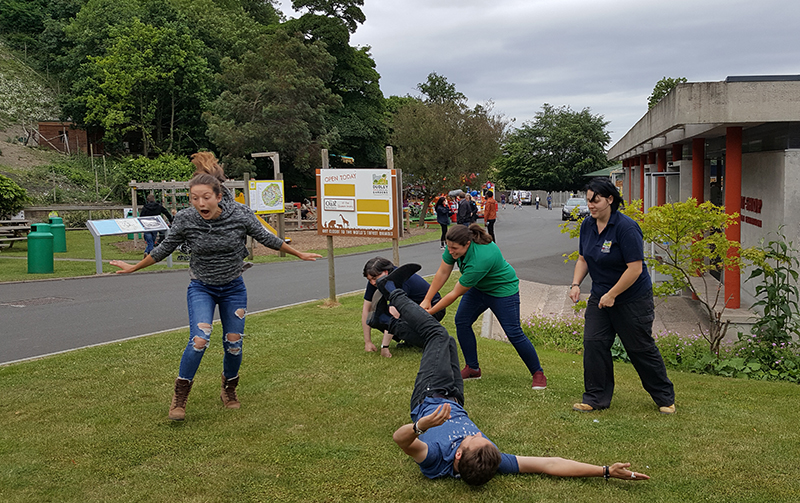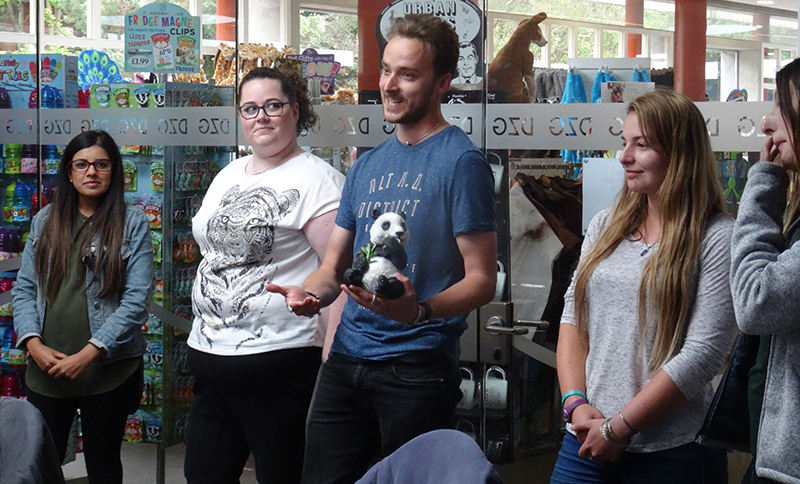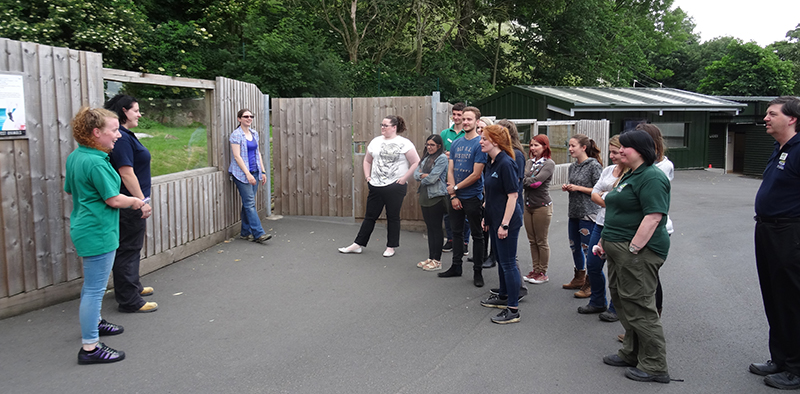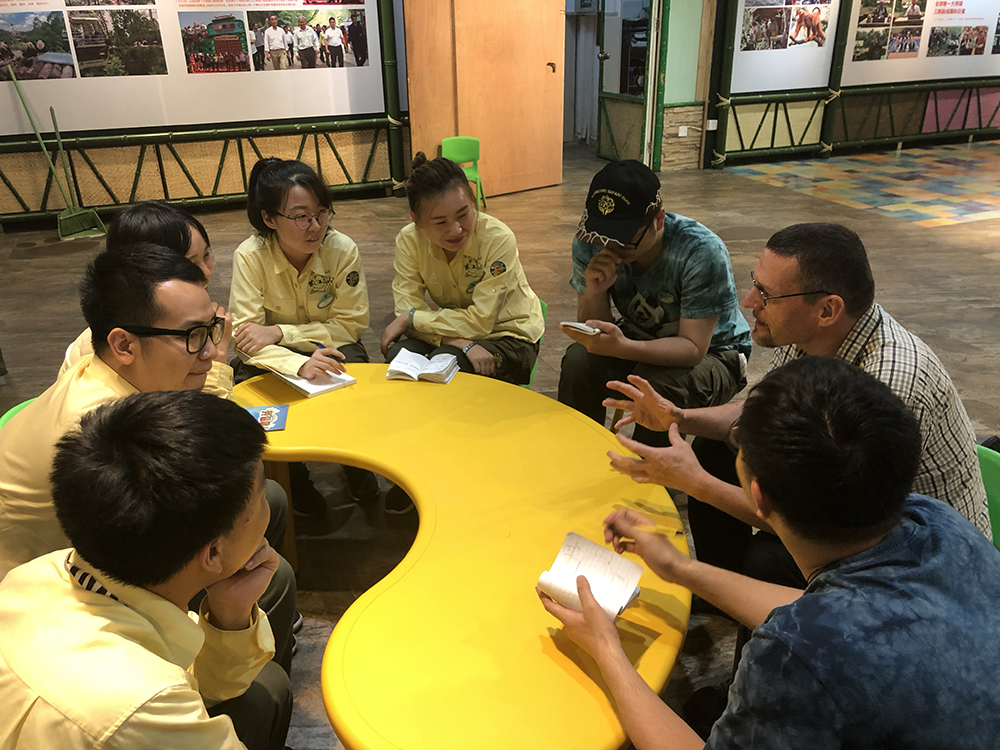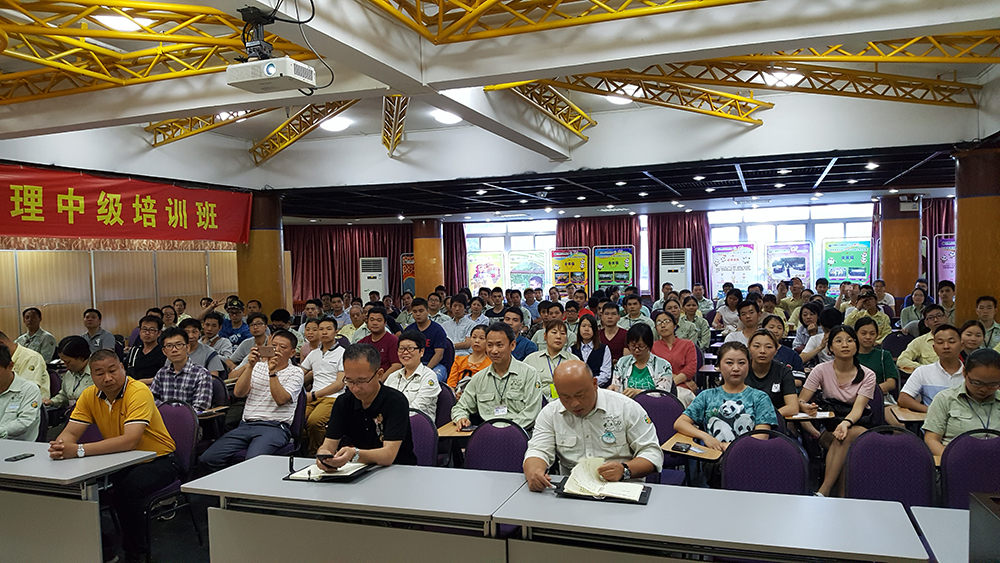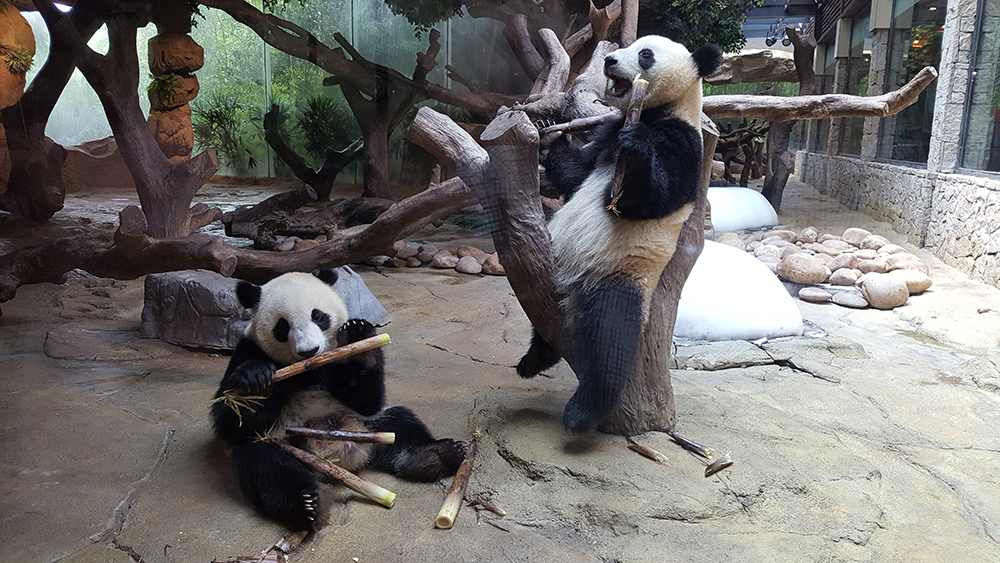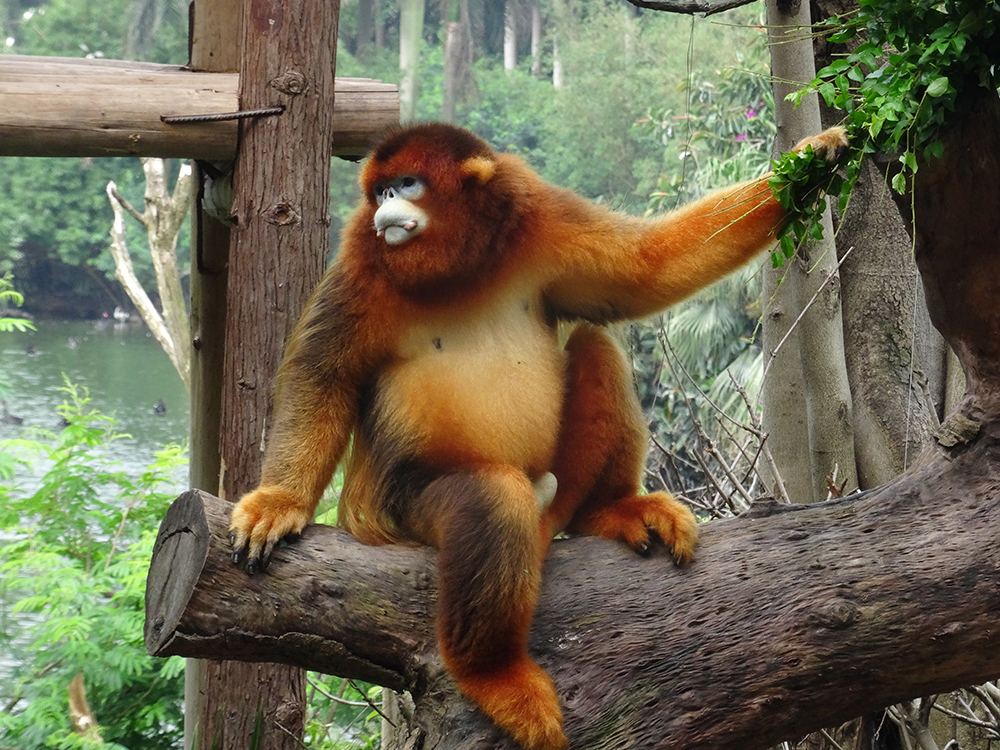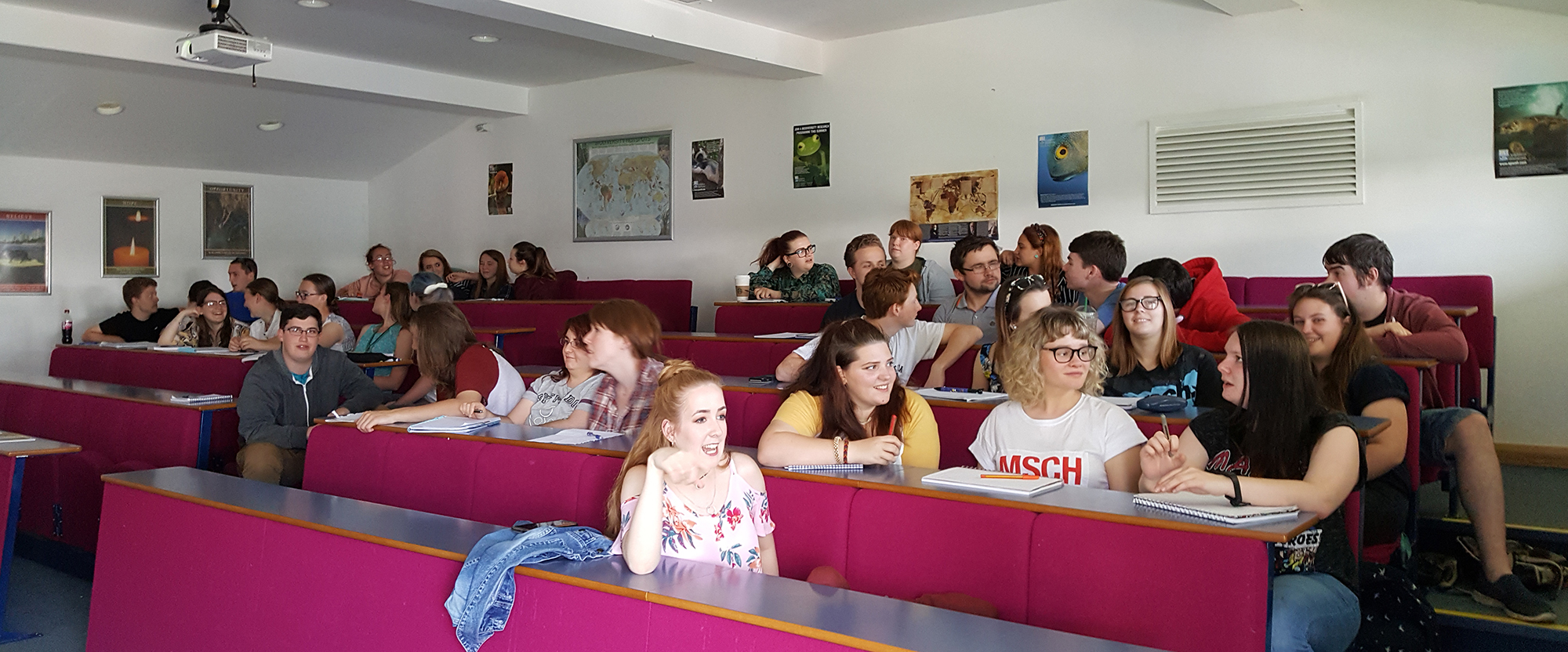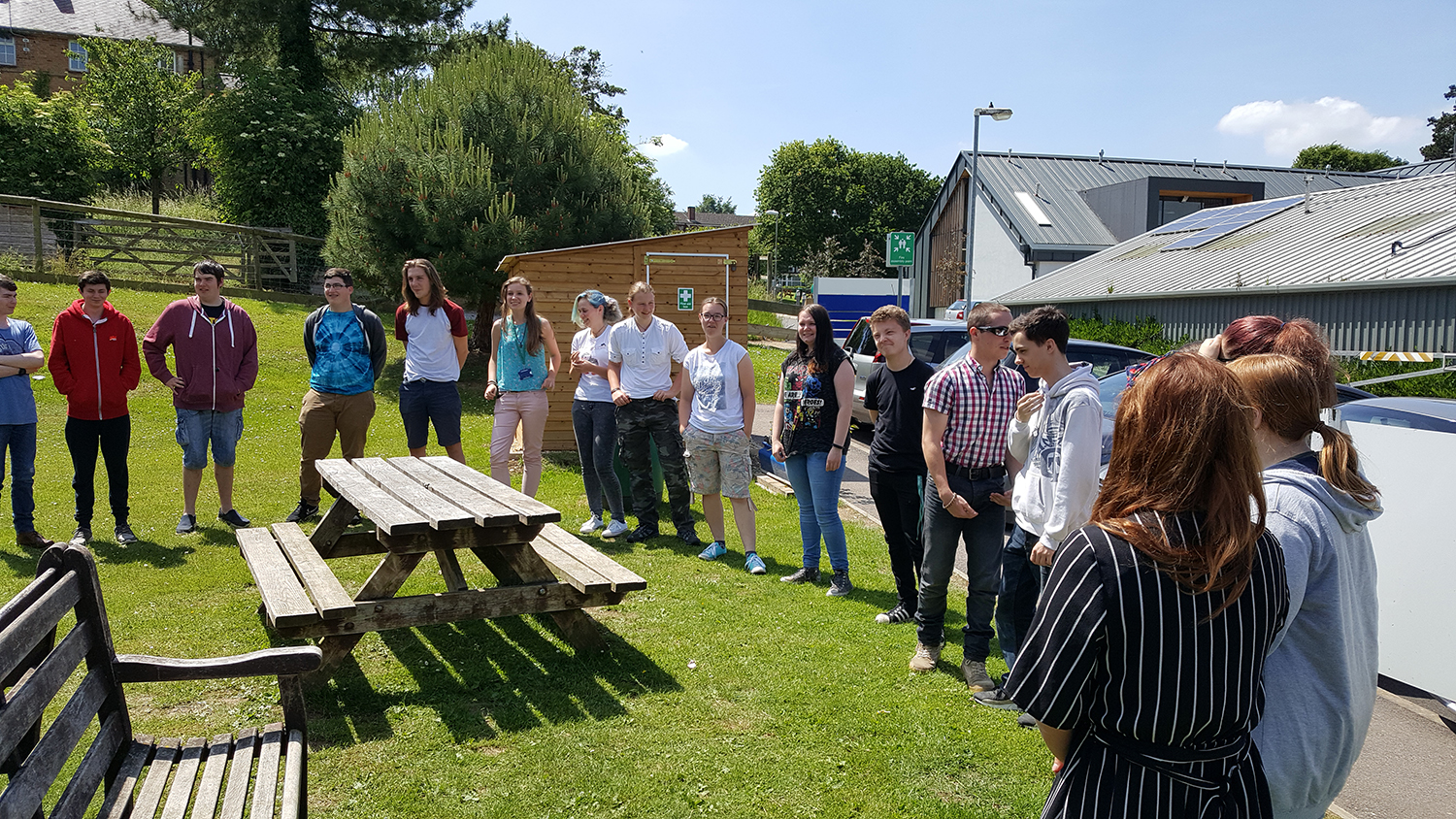Summer has arrived, and with it comes the end of term and graduation for students across the country. Over the years, I have been involved with a number of FE/HE colleges and universities, in teaching, advising, assessing, speaking and doing workshops for.
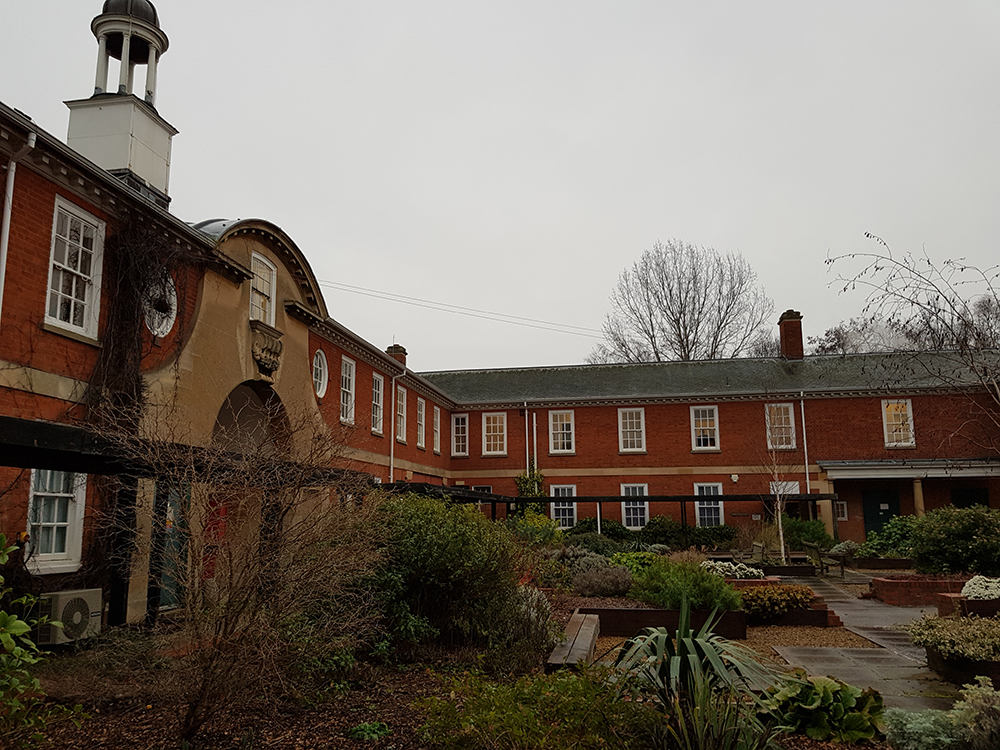
In June I was pleased to revisit Moreton Morrell College, Warwickshire College Group, to complete my term as their Industry Advisor and to provide further feedback and advice and sit in on a viva exam on a Foundation Degree course.
It’s great when a student is able to talk through their dissertation project and answer questions about it – especially since a lot of work in the Animal Care industry does involve speaking to others and answering ‘random’ questions.
For many years I have also, and continue to be, involved with the DMZAA course operated for BIAZA by Sparsholt College. The Diploma in the Management of Zoo and Aquarium Animals, continues to be the leading ‘zookeeper qualification’ in the UK (and a few overseas sites), with over 1000 graduates with DMZAA (and its previous incarnation, ANCMZA). A good background and detail in the role and work of zoos and specialist areas with some taxa specific options provides a great “grounding” for zoo staff (and recently also volunteer keepers), combined with their in-work experience, that supports day to day work and career progression and development.
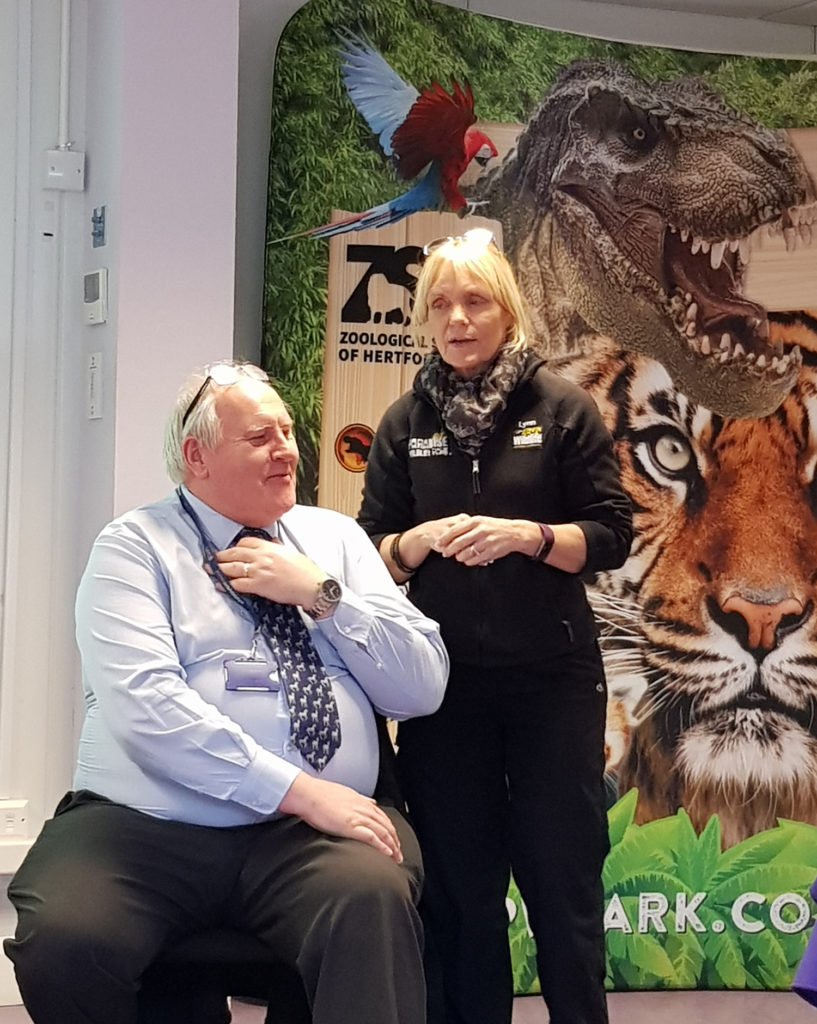
The success of DMZAA is in part the diversity of staff in zoos that are and have been involved in both writing and assessing the course, and to the students that engage with it each year. However, a very large part of the credit for DMZAA (ANCMZA) should go to Andy Beer, Sparsholt College, who has led the development and implementation of it from the start, and who officially retires this July.
Andy is known across the UK & Irish zoo community and abroad, and his drive, dedication and enthusiasm as well as commitment of time and effort, has supported the professionalism of zookeeping in the UK & Ireland and enabled some transfer of this to the Middle East, Latvia and France. Thank you Andy for all that you have done for zookeepers and zoos. It’s appreciated.
He will of course not ‘fully retire’ and will no doubt continue to support zoos and staff training and development. Thankfully DMZAA continues, and passes to his colleague Penny, and this national standard recognised keeper qualification will continue to be awarded and achieved by keepers to come. I look forward to marking more assignments each month 🙂

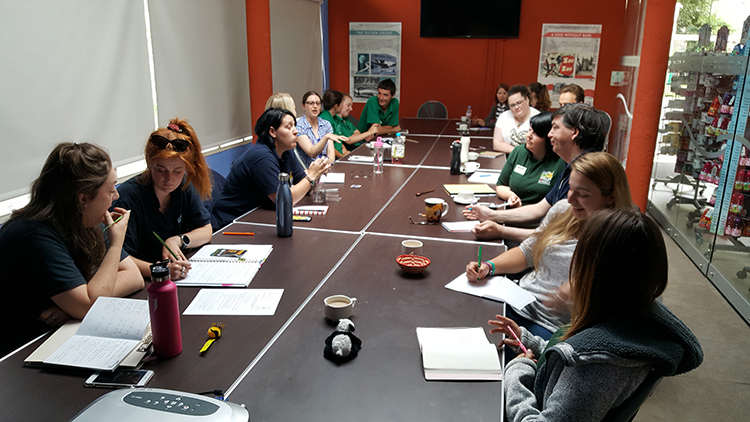 Communication and Presentation Skills training sessions are fun, and its great meeting new people.
Communication and Presentation Skills training sessions are fun, and its great meeting new people.